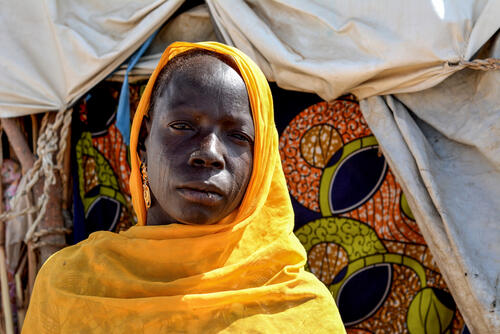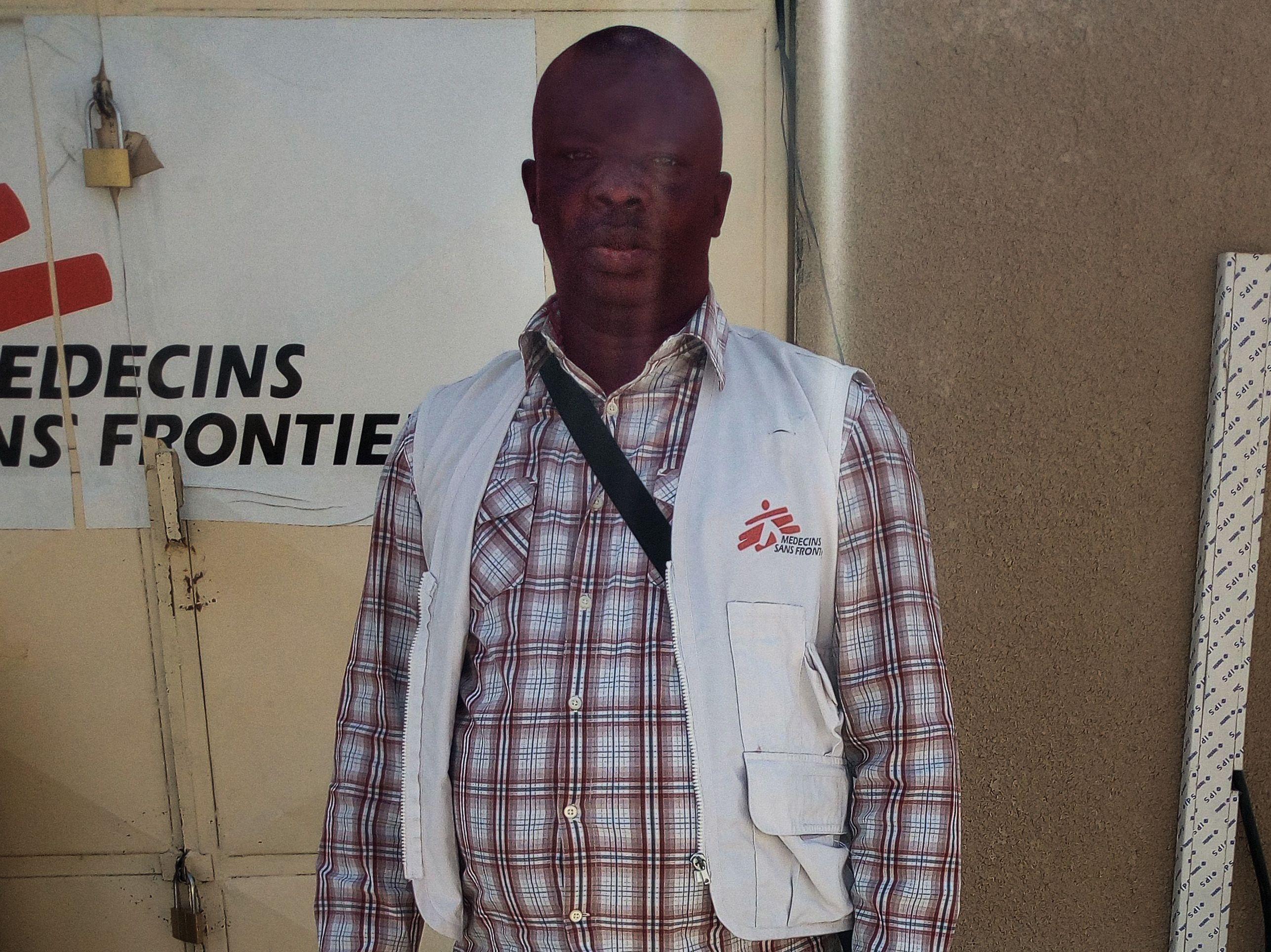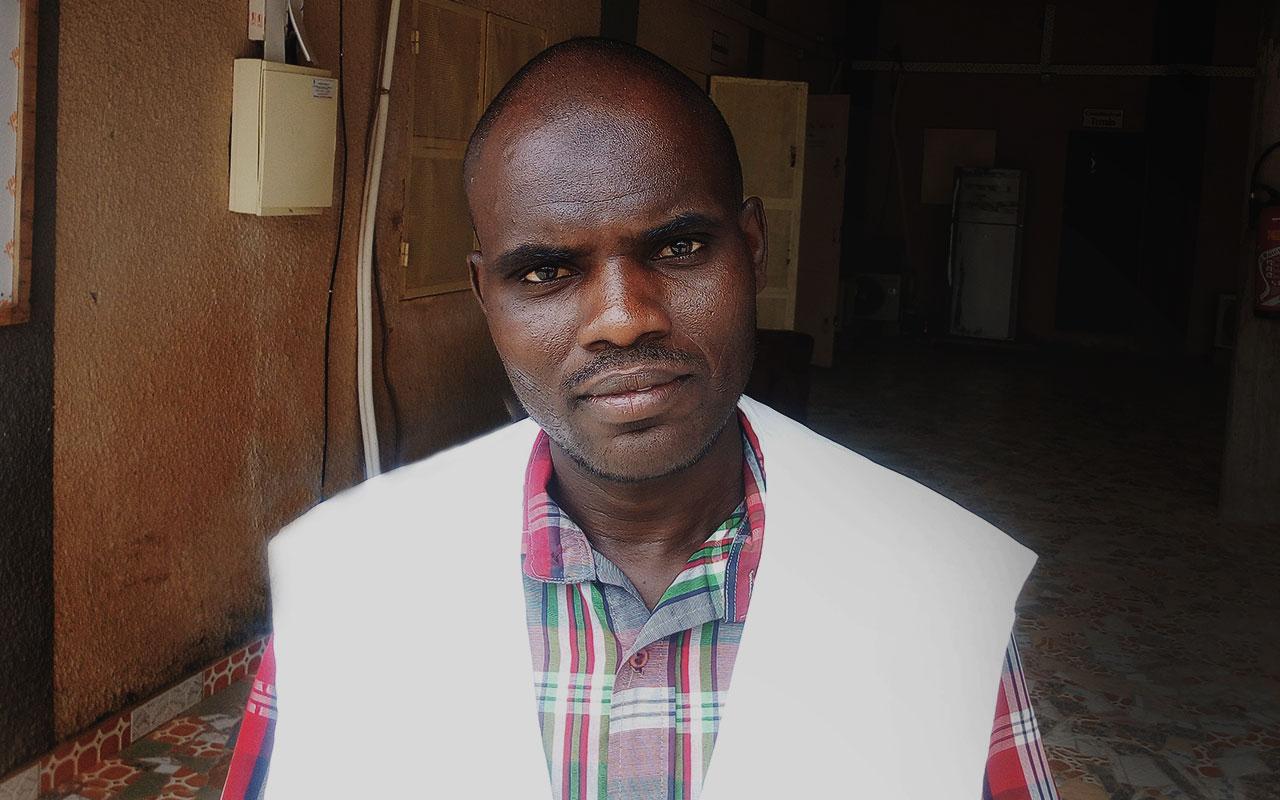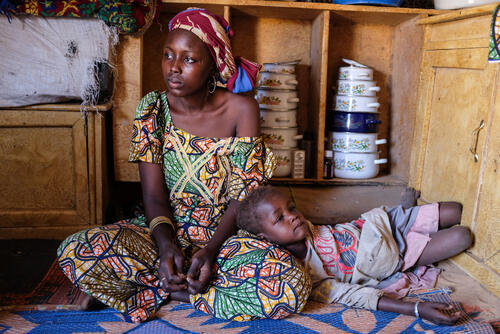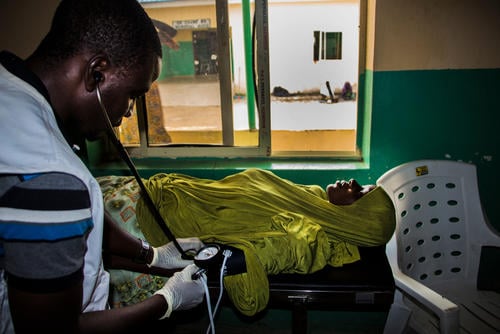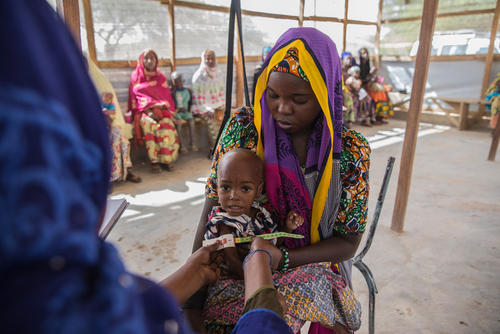Dodo Ilunga Diemu, a psychologist from the Democratic Republic of Congo, is the head of mental health services for Médecins Sans Frontières (MSF) in Niger.
In July 2015, Dodo was part of the team that launched mental health activities for displaced people in the Diffa region of Niger. Since November 2016, Dodo and his Nigerian counterpart, Yacouba Harouna, have been working side-by-side in Diffa to better understand and respond to the needs of the population.
We spoke to Dodo and Yacouba about how the mental health needs of the population have changed over the past few years, and what MSF is doing to tackle the situation.
When did MSF decide to establish mental health activities in Diffa, and why?
Dodo: MSF started working in Diffa in late 2014. The project was set up to help Nigerian refugees and internally displaced people (IDPs), who had escaped fighting between non-government armed groups and the military in the region.
The humanitarian situation at the time was incredibly serious, given the massive displacement of civilians who arrived in Niger with practically nothing. Most people had also experienced violence due to the conflict.
The psychological impact on the population was evident: MSF decided to provide mental health services in July 2015. The aim was to relieve the psychological suffering of these people and make them better able to cope with the situation.
Yacouba: We have developed a series of mental health activities in the health centres that MSF supports. These include individual consultations, group therapy and psycho-educational sessions during which we work with patients to help them face the changes in themselves and their environment.
Given the high mobility of people in the area, we try to have maximum impact during the first contact with a patient, because we don’t always know how long we will be able to help in their recovery process.
How are the mental health needs at present? How has the project evolved in response?
Dodo: Despite an apparent calm due to the decrease in mass displacements, the situation remains very tense, with regular security incidents that continue to cause civilian casualties.
On top of this, economic activities are partially limited by a state of emergency, which makes it difficult for people to rebuild their homes and resume normal lives, making them very dependent on humanitarian assistance.
Yacouba: All this causes feelings of great insecurity and anguish for people who live in the area – displaced people, refugees or local communities – hence the need to maintain mental health activities to give them psychological support.
In addition to activities at fixed sites, we have recently launched a community project to reach the most vulnerable people. Thanks to community mental health workers, we have increased our presence in the IDP sites, in schools, at community meeting points (water points, for example), and in other key locations. These mental health workers raise awareness and run psycho-educational sessions directly within the community, to help identify more people in need and ensure patient follow-up through home visits.
What are the main symptoms you are treating? Are they the same in adults and children?
Yacouba: Being forced to leave your home and start over in a new place with no idea how long you’ll be there for is very destabilising. The experience of exile is dehumanising for people on many levels – they lose all their physical, social and material reference points. They must rebuild everything, learn everything again.
In Diffa, it’s very common to meet former fishermen or farmers from the islands on Lake Chad, who previously had significant resources and status in their communities. Now they work odd jobs for others, or have to send their children out to work instead of sending them to school, barely earning enough to survive.
Many of our patients show symptoms of post-traumatic stress, excessive nervousness, permanent fear, a state of hypervigilance.Dodo Ilunga Diemu, MSF psychologist in Diffa, Niger
Dodo: This rupture is often brutal due to the highly volatile security situation and the lack of long-term certainty, causing psychological disorders to develop. Many of our patients show symptoms of post-traumatic stress, excessive nervousness, permanent fear, a state of hypervigilance, depression and loss of appetite, both literally and figuratively.
In addition to these symptoms, adults also tend to develop a strong sense of guilt that leads to a deterioration of their self-esteem and feelings of isolation.
In children, we see behavioural regression: they wet the bed, won’t play with other children, cling to their mothers.
Adolescents might get involved in criminal behaviour in an attempt to rebel against the situation, rejecting any form of authority or abusing drugs and alcohol.
How can you reach young people with mental health activities?
Dodo: Although everyone has experienced similar situations, children and adolescents are particularly vulnerable because they are still developing when these traumatic events occur. But reaching and treating them is a real challenge. In 2017, children accounted for between just eight and nine per cent of our patients. That’s why this year we decided to strengthen our approach for the five to 15-year-old age group.
Yacouba: This is one of the reasons why we launched the community mental health response. By going directly to the places where people live and spend their time, health workers can spot children and adolescents in need. Depending on age and the disorders identified, they can refer patients to different services: activities like drawing, dance, stories and games, or family consultations and group therapy.
Community workers also organise training sessions for parents, educators and anyone else who might benefit from learning the mental health warning signs in young people.
In a short period of time we have already seen a great improvement. In April, for example, children and adolescents represented more than 41 per cent of our patients (256 children). This encourages us to continue the project, because it shows there is a real need among the population.



